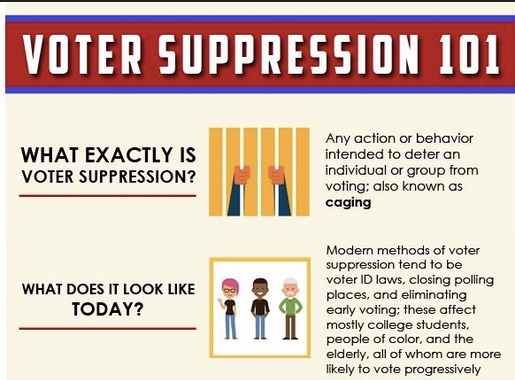On March 30, the Republican id burst forth when President Trump said that the latest congressional stimulus bill “had things — levels of voting that, if you ever agreed to it, you’d never have a Republican elected in this country again.” Two days later, the Republican House speaker in Georgia, David Ralston, admitted that an expansion of absentee voting would be “extremely devastating to Republicans and conservatives in Georgia.”
And on April 6, the U.S. Supreme Court refused, in a 5-to-4 ruling, to allow additional days for absentee voting in the Wisconsin primary. For years, Wisconsin Republicans have demonstrated that they will do anything to gerrymander and restrict access to voting to stay in power, including now asking citizens to risk their health to vote. Someone should ask Mr. Ralston and the conservative legislators and judges in Wisconsin what they are conserving.
Petitions are now flying around the internet, calling for mail-in voting as has long been practiced in Oregon and other states. Democrats are using Mr. Trump’s stumble into truth-telling as a fund-raiser. Republicans are trying to avoid the subject entirely or repeating worn-out claims of voter “fraud.”
This eruption has immediate consequences: Americans are about to see how fragile our right to vote really is. Among our many fears is the widespread concern over whether we will have an open and legitimate general election in November. If we are still stuck at home, will we be able to vote? Or will we have to risk our lives by venturing to our local school gym?




